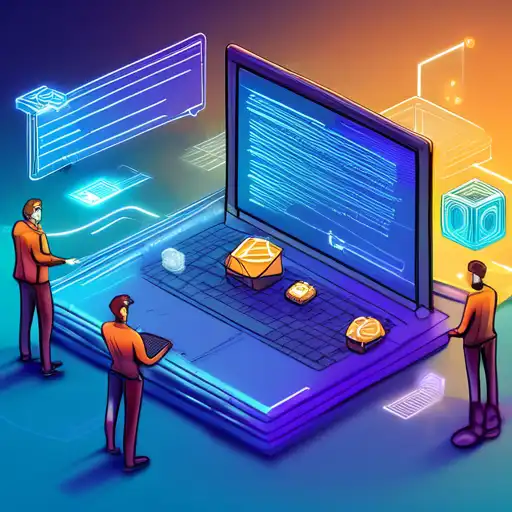Introduction to Smart Contracts
Smart contracts represent a pivotal innovation in blockchain technology, automating agreements without the need for intermediaries. These digital contracts execute transactions automatically when predetermined conditions are met, offering a blend of security, transparency, and efficiency.
How Smart Contracts Work
At their core, smart contracts are self-executing contracts with the terms of the agreement directly written into code. They run on the blockchain, ensuring that once deployed, they cannot be altered, providing a tamper-proof environment for transactions.
Benefits of Smart Contracts
- Trust and Transparency: All parties can view the contract terms, with transactions recorded on the blockchain.
- Security: Encrypted and distributed across the blockchain, making them highly secure.
- Efficiency: Automates processes, reducing the time and cost associated with traditional contracts.
Applications of Smart Contracts
Smart contracts find applications across various sectors, including finance, real estate, and supply chain management. They are instrumental in creating decentralized applications (DApps) and facilitating seamless transactions in cryptocurrency ecosystems.
Challenges and Considerations
Despite their advantages, smart contracts face challenges such as scalability issues and the need for legal recognition in some jurisdictions. It's crucial for users to understand the code and its implications fully.
Future of Smart Contracts
The future of smart contracts is intertwined with the evolution of blockchain technology. As the technology matures, we can anticipate broader adoption and more sophisticated applications, further revolutionizing how we execute agreements.
For those interested in diving deeper into blockchain technology, exploring blockchain basics can provide a solid foundation.
Conclusion
Smart contracts are a cornerstone of blockchain technology, offering a secure, efficient, and transparent way to execute agreements. As the technology continues to evolve, the potential applications of smart contracts are boundless, promising to transform industries by automating trust.
